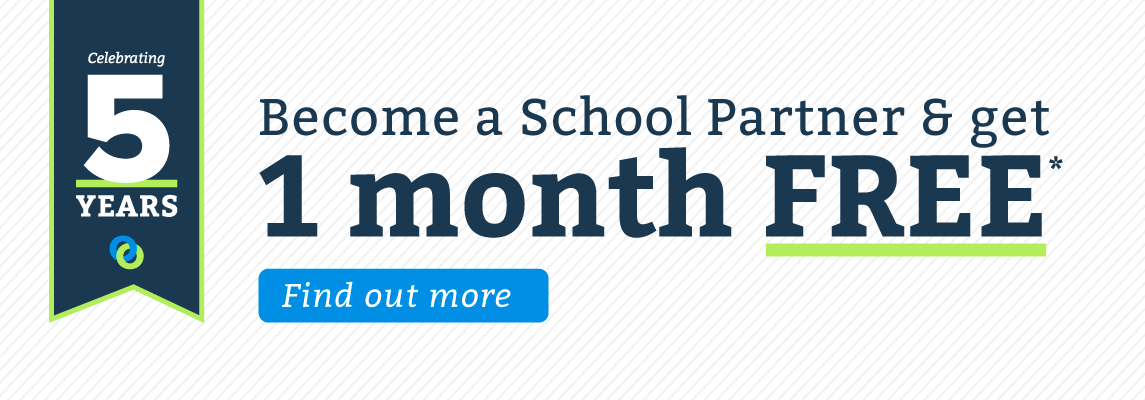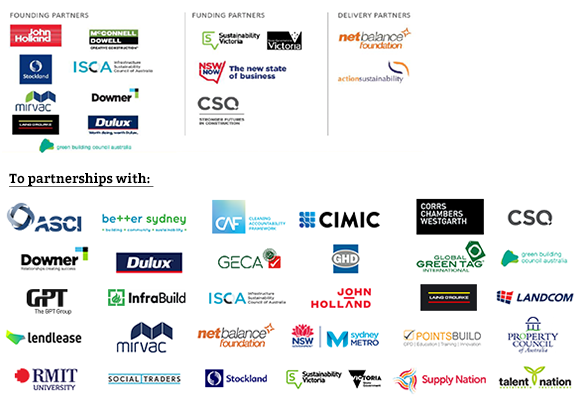The Australian Supply Chain Sustainability School (the School) is celebrating its five-year anniversary and this milestone is an opportunity to reflect on how far not only the School has come, but also our industry.
School CEO, Hayley Jarick says that “organisations are leading the charge to a more socially, environmentally and economically sustainable future in the ‘decade of change’. And they know that the only way to make a difference is to act collectively and enable their partners to act.”
Sustainability knowledge has moved from being niche to an operational imperative and the School has come into its own and is well placed to meet growing industry demand. “There is a lot of opinion readily available and expert information is becoming harder and harder to decipher through the noise. The School cuts out the noise and provides our members a free learning platform about the topics that matter in our industry,” says Jarick.
Since the School launched in 2015, it has grown steadily from just 8 founding Partners, 200 Members and 10 learning modules. Now, the School boasts 30 Partners, 1,684 Member companies, 2,698 registered users and there have been over 4,300 learning resource views. In addition to these key growth areas, the School has succeeded in:
- Developing an online self-assessment tool for businesses to rate their knowledge and develop a custom sustainability learning program.
- Making sustainability training accessible to regional Australia (anywhere with internet).
- Created informative, relevant resources by industry for industry.
- Meeting the UN’s Sustainable Development Goal #17: Partnerships grew from…

- Launching a new website, that meets digital best practice from its user experience to learning management system capabilities.
Jarick is proud of the evolution of the School so far and says that “it’s been a privilege to be connected to the School since it launched five years ago, wearing a few different hats along the way. I am fortunate to be the latest in a line of leaders that have lifted the School up over this time. I was excited to launch the new website last December with a stack of new functionality for Members and Partners but my proudest moment has been speaking with new Members after Partner supplier workshops and seeing so many new faces join the cohort of companies bettering the industry.”
She continues, saying that becoming a Member “gives you the resources you need to better your company but organisations that are looking to lead the industry should become Partners. We have a range of Partner categories to suit all types of organisations and their needs. Our Partners enjoy developing resources, events, workshops, personalised School landing pages, managing their priority supplier’s learning, managing project learning, attending exclusive events, as well as showcasing their successes through the School’s channels.”
Laing O’Rourke can attest to the benefits of Partnering with the School, saying that “the School’s work to help upskill and support the supply chain on sustainability has made a real positive difference to our business and the industry. The resources and collaborative learning environment the School has set-up has and will continue to play an important role to promote and influence the right skills, services and products to match the sustainability needs on our projects.”
The School has many long-standing supporters who have been pivotal to the School’s continued success such as Founding Partner, Downer Group. Ricky Bridge, Downer’s Group General Manager – Sustainability, Reporting and Data Analytics, says that this “milestone marks five remarkable years of being the ‘go to’ innovative online platform for our contractors and suppliers to engage in education and knowledge on sustainability related issues and better equip the supply chain for future success.”
Robin Mellon, CEO of Better Sydney, reflected that “it’s been amazing to see the School’s trajectory over the past five years – three of which I spent as the School’s inaugural Chief Executive Officer – and how the team is working with more partners, more projects, more topics, more governments and not-for-profits, and more learning resources than ever before.”
So, what is on the horizon for the sustainability industry and how will the School continue to adapt to the needs of the market? Jarick says that “a lot of people in the sustainability field come from an environmental perspective with a tremendous ability to influence people with a like-minded desire to take care of the planet. We are seeing a trend for broader social and economic sustainability to be incorporated into this mix which had brought with it challenges and benefits.
For instance, people are taking on board the intent of the Modern Slavery Act and changing their management approach of those who don’t initially comply with sustainability goals. Instead of blacklisting and avoiding non-complying companies, now the trend is to use your position of influence to work with others towards compliance. This is transformational for the industry and means that many in the industry will need to learn or refresh their emotional intelligence and conflict management skills.”
Jarick states that “the School is constantly evolving to changes and future needs. We are evolving the types of resources we have, to cater for changes in how people want to learn. We are adding new resources every month and reviewing old resources to ensure our catalogue only contains the best resources. We are also looking to expand the School in new markets, so watch this space.”
For more information, please contact:
Hayley Jarick, Chief Executive Officer
Supply Chain Sustainability School
E: [email protected]


